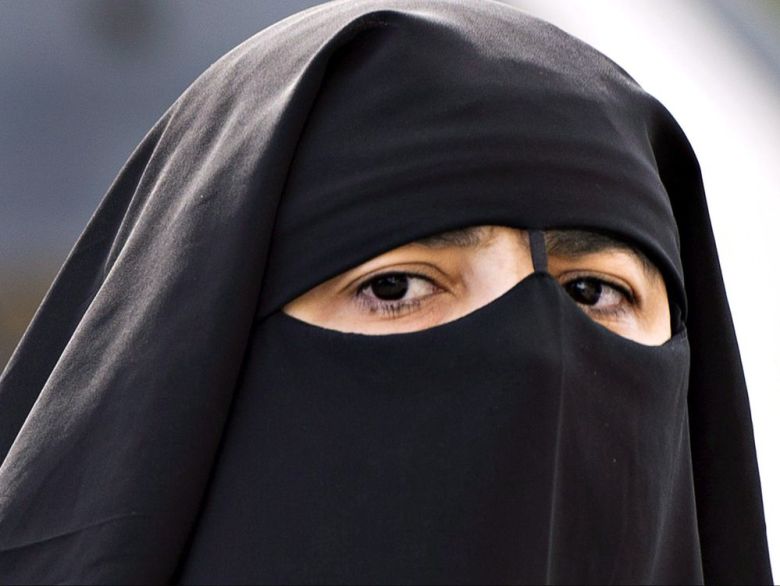Quebec’s newly tabled law, “An Act respecting the laicity of the State,” will be sent to committee for study, and with the help of the notwithstanding clause, will pass as written. The new law prohibits all government employees in positions of authority — judges, police, educators in elementary and high school (plus anyone carrying a weapon, such as wildlife officers) — from wearing face coverings or visible religious symbols.
Opponents of the law, who include virtually all my anglophone colleagues, lean heavily on “human rights” and “freedom of religious expression” to defend their stance. But when group rights in a democracy collide, only one side can win.
When group rights in a democracy collide, only one side can win
The issue of face cover, for example, has been wrestled with for years in various European countries such as the Netherlands, Germany, the U.K., Denmark and Austria, in which the custom has proliferated in Muslim enclaves to the point of social divisiveness. The matter was settled by the European Court of Human rights (“the Court”), which found that found that face veil bans did not violate the European Convention on Human Rights. The Court based its decision on a number of factors, including public security, and “protection of the rights and freedoms of others.”
As I have frequently argued in these pages, I consider the social right to see the face of any official interlocutor more compelling than indulgence of what should be acknowledged, even by those urging its acceptance, as a patriarchal culture’s symbol of misogyny and, all too often, a sign of hostility to Western cultural norms. The fact that face cover is not widespread here at present is no reason why the principle should not be legally established to nip proliferation in the bud.

Cultural diversity is desirable in a society insofar as practices accord with that society’s basic principles. Face cover in public service should offend us. That it is a Muslim custom is neither here nor there. It is not racist to adopt policies that will encourage newcomers from less gender-enlightened cultures to integrate sooner rather than later, especially when integration to a common culture rather than “post-nationalism” is the collective value.
STORY CONTINUES BELOW
The issue of visible religious symbols is thornier. Critics see the law as conceived in an anti-Muslim spirit. They are half right. The hijab is doubtless a major sticking point for Quebec’s “values” activists. But then, unlike the others, the hijab is far more than a merely religious symbol. Many girls and women who wear the hijab are apolitical, but the hijab can be, and often has been, a rallying instrument for political Islam.
Cultural diversity is desirable in a society insofar as practices accord with that society’s basic principles
Most notably, it is linked with the 1979 Iranian Revolution, after which the hijab became mandatory in Iran for girls aged six and older. Today it is regarded there as a symbol of government tyranny and oppression. Many courageous women have suffered persecution and imprisonment for the right to unbind their heads. They may justifiably feel triggered by having to, say, take university courses from or plead a case in a court presided over by a covered woman. An illegal resident in America would not wish to be stopped for questioning by a police officer wearing a MAGA cap. That’s how these women feel about hijabs.
Iranian-Australian journalist Rita Panahi, for example, was forced to wear the hijab as a child. She noted in a recent Sky News broadcast that New Zealand’s impulsive “headscarf for harmony” campaign following the Christchurch massacre, which saw politicians, police and media personalities donning head cover as a gesture of solidarity with Muslims, was, “albeit well-intentioned,” a “misguided and counter-productive” form of activism. If one listens closely to Panahi and other Muslim women like her with similar “lived experience” — a trope much beloved of progressives — one realizes that it is simplistic and unfair to judge the new law as anti-Muslim.
It is simplistic and unfair to judge the new law as anti-Muslim
Let’s just say it’s complicated. Bill 21 is a law rooted in a vision of society — complete separation of church and state in state-sponsored civic life — that affects all religions equally. It’s also a vision most Quebecers approve of. One may disagree with it, but to call it “depravity,” as Andrew Coyne (who as a man has no idea, and never will, what forced veiling feels like) did in his recent column in the National Post, is a shocking calumny.
In 2004, France banned the hijab in public schools, along with other “ostentatious” religious symbols. Muslim leaders protested the law as an attack on their religion. There were demonstrations. But public tensions died down quickly. The vast majority of Muslim girls who wore the hijab (an estimated 5,000 in 2000) complied without incident. The uprising predicted by the intellectual class never materialized. Perhaps there is a lesson to be drawn here for those in the punditocracy who are predicting the end of civilization as we know it with the coming passage of Quebec’s Bill 21.































